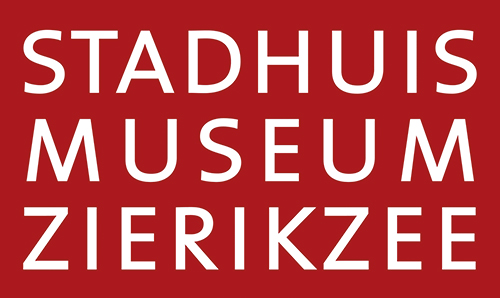Description
The Zierikzee herbarium is one part of a larger garden herbarium from the Leiden Hortus botanicus, created in the first half of the 18th century. The herbarium is now part of the collection of the Stadhuismuseum in Zierikzee (Zeeland), where varying specimens are on permanent exhibition. Following the death of one of its owners in 1838, Diederica Schutter, it was transferred from Utrecht to Oosterland (Zeeland) where her next-of-kin lived and in 2008 it was gifted by her relatives to the museum. Prior to this, in 1739, the herbarium was auctioned off as part of the library of Herman Boerhaave (1668-1738), professor of botany and curator of the Leiden botanical garden. Research revealed that the other part, the so-called D’Oignies herbarium, now kept in the collection of Naturalis Biodiversity Center, was in possession of one of its gardeners, Jakob Ligtvoet (1686-1752), who worked with curators Petrus Hotton (1648-1709), Boerhaave and Adriaan van Royen (1704-1779). Cultivating, collecting, drying, mounting and describing the specimens must have been a collaborative effort made by both curator and gardener.
The 348 specimens show a wide variety of exotic, indigenous and medicinal plant species, originating from all over the then known world, but mostly obtained from an extensive international network of botanists. Based on their presence in contemporary Leiden garden catalogues, the vast majority, including many subtropical and a few tropical species - were cultivated in the garden itself (304).
All specimens have been meticulously mounted and lovingly decorated with printed paper vases, bows and ribbons, giving the herbarium its unique appearance. After its sale consecutive owners applied various labels, re-naming the specimens according to current nomenclature or contemporary pharmacopeias, but the original herbarium would only have contained loose tags to identify the plants with. The herbarium is a testimony to the fascination with plants and the desire to study them in the period leading up to the publication of Species plantarum (Linnaeus, 1753).
Enregistrements de données
Les données de cette ressource occurrence ont été publiées sous forme d'une Archive Darwin Core (Darwin Core Archive ou DwC-A), le format standard pour partager des données de biodiversité en tant qu'ensemble d'un ou plusieurs tableurs de données. Le tableur de données du cœur de standard (core) contient 348 enregistrements.
1 tableurs de données d'extension existent également. Un enregistrement d'extension fournit des informations supplémentaires sur un enregistrement du cœur de standard (core). Le nombre d'enregistrements dans chaque tableur de données d'extension est illustré ci-dessous.
Cet IPT archive les données et sert donc de dépôt de données. Les données et métadonnées de la ressource sont disponibles pour téléchargement dans la section téléchargements. Le tableau des versions liste les autres versions de chaque ressource rendues disponibles de façon publique et permet de tracer les modifications apportées à la ressource au fil du temps.
Versions
Le tableau ci-dessous n'affiche que les versions publiées de la ressource accessibles publiquement.
Comment citer
Les chercheurs doivent citer cette ressource comme suit:
Offerhaus A, Schipper I, van Meerten M, Creuwels J (2024). Stadhuismuseum Zierikzee - Herbarium. Version 1.9. Netherlands Biodiversity Information Facility (NLBIF). Occurrence dataset. https://tryout.nlbif.nl/resource?r=zierikzee_herbarium&v=1.9
Droits
Les chercheurs doivent respecter la déclaration de droits suivante:
L’éditeur et détenteur des droits de cette ressource est Stadhuismuseum Zierikzee. Ce travail est sous licence Creative Commons Attribution Non Commercial (CC-BY-NC) 4.0.
Enregistrement GBIF
Cette ressource a été enregistrée sur le portail GBIF, et possède l'UUID GBIF suivante : ebd01d3e-5e9a-4e80-8ae2-1dfe9a032bf7. Stadhuismuseum Zierikzee publie cette ressource, et est enregistré dans le GBIF comme éditeur de données avec l'approbation du Netherlands Biodiversity Information Facility.
Mots-clé
Occurrence; Plantae; herbarium; Boerhave; botanical garden
Contacts
- Fournisseur Des Métadonnées ●
- Créateur ●
- Personne De Contact
- Guest researcher
- PO Box 9517
- +31.6.25083910
- Créateur
- Curator
- Meelstraat 6-8
- +31.111.454464
- Créateur
- Collection manager
- Meelstraat 6-8
- +31.111.454464
- Créateur
- Data manager
Couverture géographique
Hortus Botanicus in Leiden
| Enveloppe géographique | Sud Ouest [52,157, 4,485], Nord Est [52,157, 4,485] |
|---|
Couverture taxonomique
A wide variety of indigenous and medicinal plant species, originating from all over the then known world, mostly cultivated in the botanical garden.,
| Kingdom | Plantae |
|---|---|
| Family | Chenopodiaceae, Ericaceaea, Hypericaceae, Lamiaceae, Malvaceae, Araliaceae, Oxalidaceae, Cannabaceae, Melanthiaceae, Myrtaceae, Scrophulariaceae, Plantaginaceae, Sapindaceae, Aristolochiacaea, Acanthaceae, Rosaceae, Acoraceae, Ranunculaceae, Equisetaceae, Saxifragaceae, Caprifoliceae, Paeoniaceae, Rutaceae, Cyperaceae, Polypodiaceae, Caprifoliacaea, Brassicacea, Apiaceae, Grossulariaceae, Oleaceae, Asparagaceae, Cupressaceae, Marantaceae, Solanaceae, Caryophyllaceae, Pinaceae, Papaveraceae, Iridaceae, Leguminosae, Araceae, Pteridaceae, Polygonaceae, Portulacaceae, Compositae, Ericaceae, Poaceae, Geraniaceae, Brassicaceae, Rubiaceae, Juncaceae, Cistaceae, Violaceae, Crassulaceae, Fabaceae, Orchidaceae, Urticaceae, Nymphaeaceae, Fagaceae, Caprifoliaceae, Boraginaceae, Tropaeolaceae, Lauraceae, Gentiananaceae, Verbenaceae, Berberidaceae, Lythraceae, Aristolochiaceae, Adoxaceae, Ebenaceae, Valerianaceae, Convolvulaceae, Lycopodiaceae, Primulaceae, Aspleniaceae, Apocynaceae, Menyanthaceae, Linaceae, Ophioglossaceae, Amaranthaceae, Celastraceae, Cucurbitaceae, Athyriaceae, Marchantiaceae, Orobanchaceae, Salicaceae, Euphorbiaceae, Palmae, Anacardiaceae, Brassicaceae, Zingiberaceae |
Couverture temporelle
| Epoque de formation | 1725-1750 |
|---|
Citations bibliographiques
- Offerhaus A, De Haas E, Porck H, Kardinaal A, Ek R, Pokorni O, van Andel T 2021. The Zierikzee Herbarium: contents and origins of an enigmatic 18th century herbarium. Blumea 66 (1): 1–52. https://doi.org/10.3767/blumea.2021.66.01.01
Métadonnées additionnelles
| Identifiants alternatifs | ebd01d3e-5e9a-4e80-8ae2-1dfe9a032bf7 |
|---|---|
| https://ipt.nlbif.nl/resource?r=zierikzee_herbarium |
